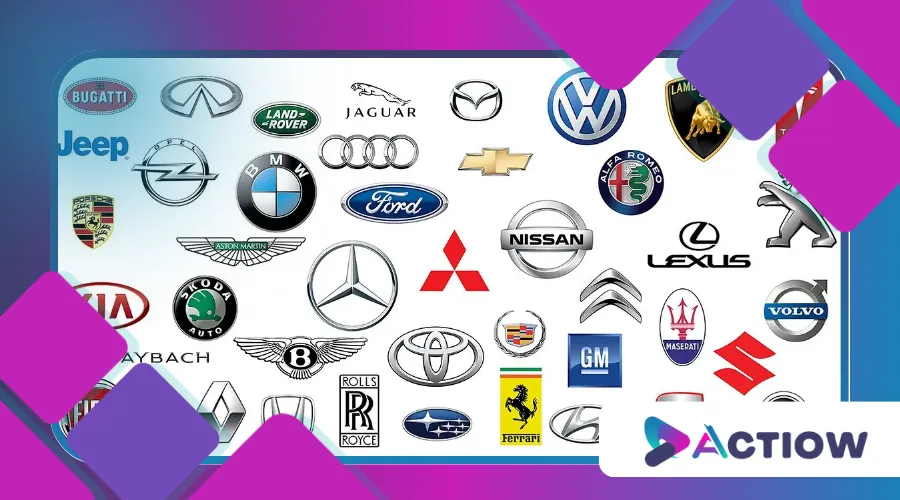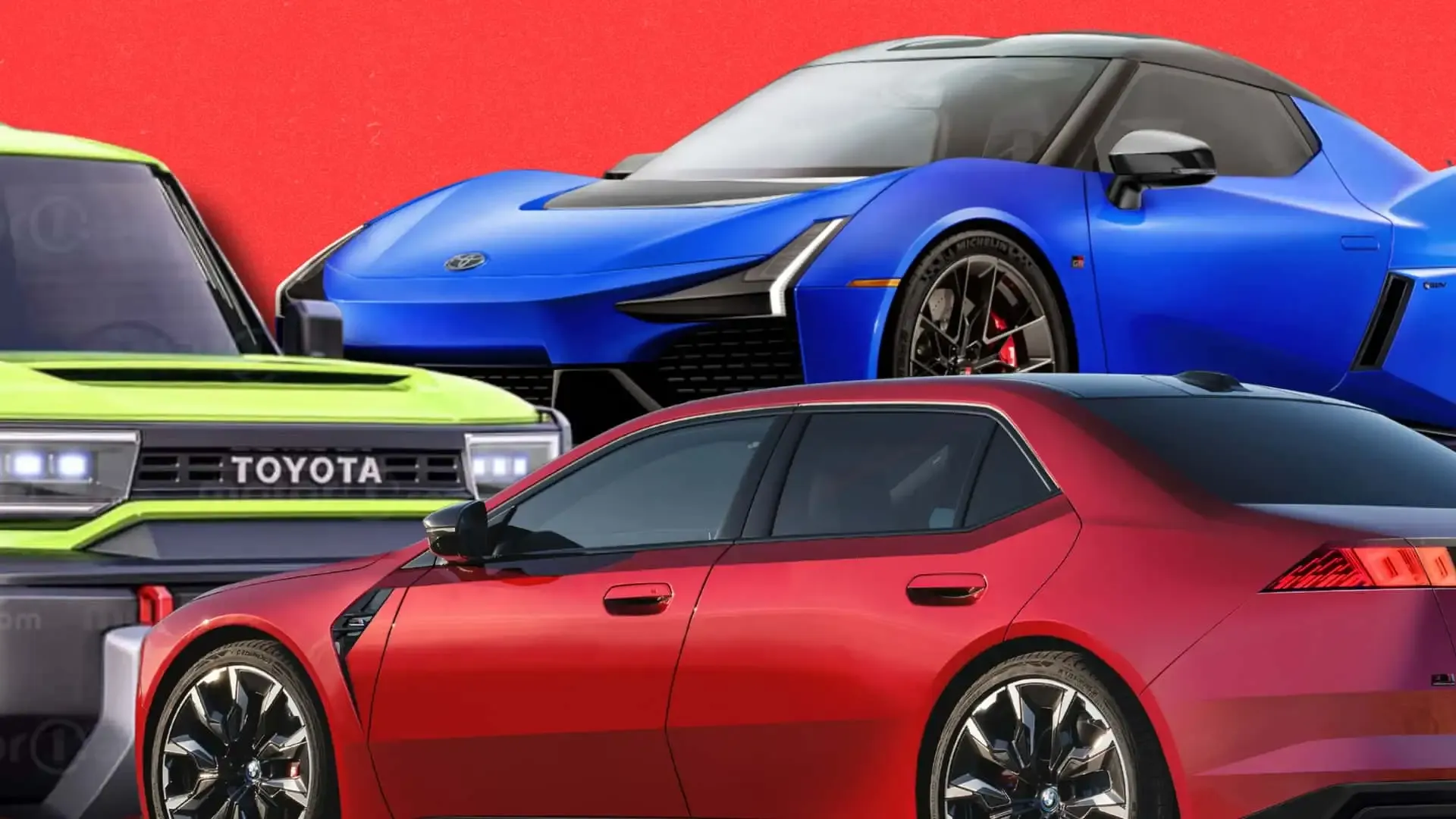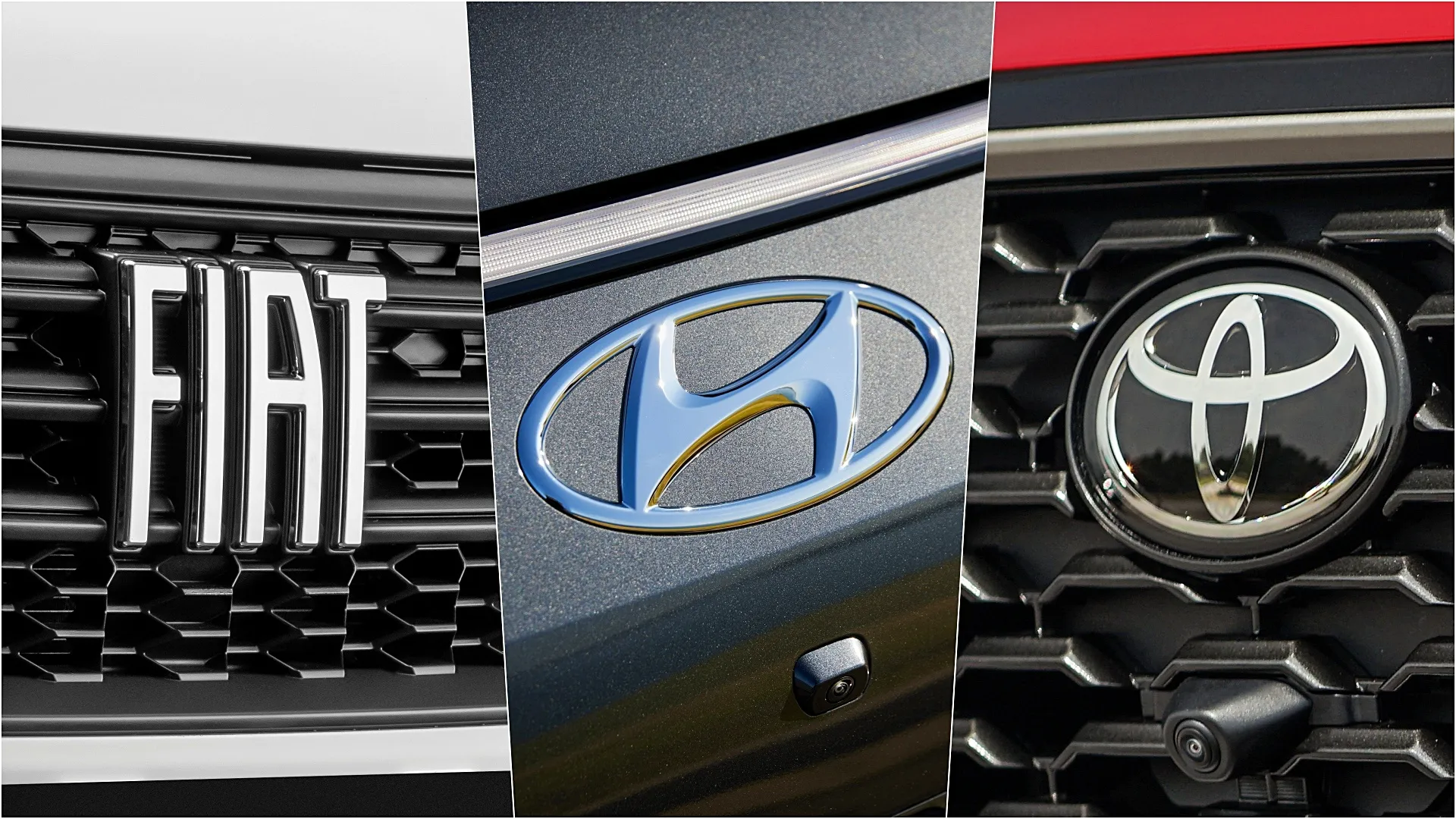The Most Reliable Car Brands in the World

Anúncios
When searching for the most reliable car brands in the world, buyers prioritize vehicles that promise longevity, minimal repairs, and consistent performance.
Reliability isn’t just about avoiding breakdowns; it’s about trust—knowing your car will start every morning, handle long drives, and keep maintenance costs low.
In 2025, the automotive landscape is shaped by rigorous testing, consumer feedback, and technological advancements.
Anúncios
This article explores the most dependable car brands, blending data-driven insights, innovative engineering, and real-world examples to guide your next purchase.
Why settle for less when you can drive with confidence?
What Defines Reliability in Cars?
Reliability in automobiles goes beyond a car simply “working.”
It’s a measure of how well a vehicle withstands the test of time, mileage, and diverse driving conditions.
Think of it like a marathon runner: the best ones don’t just finish the race but do so consistently, without collapsing or needing constant recovery.
Key factors include build quality, mechanical durability, and low failure rates in critical systems like engines, transmissions, and electronics.
Consumer Reports’ 2024 Annual Auto Reliability Survey, based on data from over 300,000 vehicles, remains a cornerstone for assessing dependability.
It evaluates 20 trouble areas, from squeaky brakes to infotainment glitches, providing a comprehensive view of brand performance.
Reliability isn’t static—it evolves with design improvements and manufacturing precision, making it essential to focus on current data.
Moreover, consumer feedback plays a crucial role in shaping reliability assessments, as real-world experiences often highlight issues that tests may overlook.
Top Performers in Reliability
Toyota: The Gold Standard in Consistency
Toyota has long been synonymous with durability, earning its place among the most reliable car brands in the world.
Its philosophy of incremental improvement—known as kaizen—ensures that models like the Corolla and RAV4 are engineered for longevity.
Take the 2025 Toyota Camry: its hybrid powertrain, refined over decades, delivers fuel efficiency and a track record of minimal mechanical issues.
Owners report vehicles surpassing 200,000 miles with routine maintenance, a testament to Toyota’s focus on robust engineering.
What sets Toyota apart?
Its conservative approach to innovation avoids untested technologies, prioritizing proven systems.
The brand’s global supply chain resilience also minimizes production flaws, ensuring consistent quality.
In Consumer Reports’ 2024 rankings, Toyota scored 76 out of 100, leading the pack.
Additionally, Toyota’s commitment to safety features and advanced technology enhances not only reliability but also the overall driving experience.
Lexus: Luxury Meets Longevity
Lexus, Toyota’s luxury arm, combines opulence with reliability, proving you don’t have to sacrifice dependability for premium features.
The 2025 Lexus ES, for instance, blends a refined V6 engine with a meticulously crafted interior, rarely needing unscheduled repairs.
Owners like Sarah Thompson, a Seattle-based accountant, praise her 2023 Lexus RX: “It’s been two years, 30,000 miles, and not a single issue—not even a warning light.”
Lexus excels by leveraging Toyota’s engineering while adding superior materials and quality control.
Its vehicles often rank high in initial quality and long-term durability, making it a favorite for buyers seeking upscale reliability.
Moreover, Lexus offers exceptional customer service and warranty programs, further enhancing the ownership experience and peace of mind for drivers.

Honda: Engineering Precision for Everyday Drivers
Honda’s reputation for reliability stems from its obsession with mechanical efficiency.
Models like the 2025 Honda Civic and CR-V consistently rank among the most reliable car brands in the world due to their bulletproof engines and transmissions.
Honda’s 1.5-liter turbocharged engine, for example, balances performance and durability, with failure rates below 2% in Consumer Reports’ data.
The brand’s strength lies in its ability to deliver affordable, dependable vehicles without cutting corners.
Honda’s rigorous testing ensures components withstand extreme conditions, from icy Canadian winters to Arizona’s scorching heat.
This versatility makes Honda a go-to for diverse drivers.
Additionally, Honda’s commitment to sustainability through hybrid technology reflects its forward-thinking approach, appealing to environmentally conscious consumers.
+ The Most Iconic Classic Cars of All Time
Mazda: The Underdog with Staying Power
Mazda has quietly climbed the reliability ranks, blending sporty design with dependable mechanics.
The 2025 Mazda CX-5, with its Skyactiv technology, optimizes fuel efficiency and engine performance without compromising longevity.
Mazda’s focus on driver engagement doesn’t overshadow its commitment to durability, as evidenced by its top-five ranking in recent reliability surveys.
Consider James Rivera, a Phoenix-based teacher who drives a 2020 Mazda3.
“I’ve put 50,000 miles on it, including cross-country trips, and it’s only needed oil changes and tires,” he says.
Mazda’s rise reflects its ability to innovate while maintaining a sharp focus on quality control.
Furthermore, Mazda’s unique design philosophy, which emphasizes a connection between the driver and the vehicle, enhances the overall driving experience, making it a favorite among enthusiasts.
Subaru: Rugged Reliability for Adventure Seekers
Subaru’s all-wheel-drive systems and boxer engines have made it a favorite for outdoor enthusiasts, but its reliability is equally impressive.
The 2025 Subaru Outback, designed for rugged terrains, boasts a low incidence of major repairs.
Subaru’s commitment to safety and durability ensures its vehicles endure harsh conditions, from snowy mountain passes to muddy trails.
The brand’s reliability shines in its consistent performance across climates.
Subaru’s 2024 reliability score of 70 reflects its ability to deliver vehicles that rarely falter, even under stress.
Additionally, Subaru’s active involvement in community initiatives and environmental sustainability resonates with customers, further enhancing brand loyalty.
Data-Driven Insights: Reliability Rankings
To provide clarity, here’s a breakdown of the top five most reliable car brands in the world based on 2024 data:
| Brand | Reliability Score (out of 100) | Standout Models |
|---|---|---|
| Toyota | 76 | Corolla, RAV4, Camry |
| Lexus | 74 | ES, RX, NX |
| Honda | 70 | Civic, CR-V, Accord |
| Mazda | 68 | CX-5, Mazda3, CX-30 |
| Subaru | 67 | Outback, Forester, Crosstrek |
This table reflects Consumer Reports’ findings, emphasizing brands with consistent performance across model lines.
Moreover, these rankings are influenced by ongoing consumer feedback, which helps manufacturers identify areas for improvement and maintain their reliability standards.

Factors Behind Reliability
What makes these brands stand out among the most reliable car brands in the world?
It’s a mix of engineering philosophy, manufacturing rigor, and customer feedback integration.
Toyota and Lexus prioritize simplicity, avoiding overly complex systems that increase failure risks.
Honda’s focus on precision engineering ensures components are overbuilt for durability.
Mazda and Subaru, meanwhile, balance innovation with proven designs, minimizing teething issues in new models.
Electrification also plays a role.
Hybrids, like those from Toyota and Honda, often outperform traditional gas engines in reliability due to fewer moving parts.
A 2024 J.D. Power study found that hybrid vehicles had 12% fewer repair incidents than gas-only counterparts, highlighting the edge of electrified powertrains.
Additionally, ongoing advancements in manufacturing technology and quality control processes contribute to the overall reliability of these brands.
++ Muscle Cars vs. Supercars: What’s the Difference?
Challenges for Other Brands
Not all manufacturers prioritize reliability equally.
European luxury brands like BMW and Mercedes-Benz, while offering cutting-edge technology, often lag in dependability due to complex electronics and high maintenance costs.
American brands like Ford and Chevrolet have improved but struggle with inconsistent quality across model lines.
Why do some brands falter?
Overreliance on untested innovations or rushed production cycles can lead to costly recalls and repairs.
Moreover, the pressure to integrate the latest technology can sometimes compromise the reliability of fundamental vehicle systems, leading to increased consumer dissatisfaction.
Comparing Reliability Across Segments
Different vehicle types face unique reliability challenges.
Here’s how the most reliable car brands in the world perform across key segments:
| Segment | Top Brand | Key Model | Why It Excels |
|---|---|---|---|
| Compact Cars | Honda | Civic | Durable engine, low maintenance costs |
| SUVs | Toyota | RAV4 | Robust hybrid system, high resale value |
| Luxury Vehicles | Lexus | ES | Premium build, minimal electronic issues |
| Adventure Vehicles | Subaru | Outback | Rugged design, reliable AWD system |
This table underscores how reliability varies by segment, with each brand leveraging its strengths to dominate specific categories.
Additionally, understanding these segment-specific strengths can help consumers make informed decisions based on their unique needs and preferences.
The Human Element: Why Reliability Matters
Reliability isn’t just a statistic—it’s a lifeline.
Imagine a single parent relying on their Honda Civic to get to work, or an adventurer trusting a Subaru Outback to navigate remote trails.
These vehicles aren’t just machines; they’re partners in life’s journey.
Choosing among the most reliable car brands in the world means investing in peace of mind, financial savings, and safety.
A striking statistic: vehicles from top brands like Toyota and Honda retain up to 60% of their value after five years, compared to 40% for less reliable brands, according to Kelley Blue Book.
This resale advantage underscores the long-term benefits of choosing dependability.
Moreover, the emotional connection people develop with their vehicles often translates to brand loyalty, reinforcing the importance of reliability in consumer choices.
Looking Ahead: The Future of Reliability
As the automotive industry shifts toward electric vehicles (EVs) and autonomous driving, reliability will face new tests.
EVs, with fewer mechanical components, promise lower maintenance but introduce challenges like battery degradation.
Brands like Toyota and Honda are already adapting, with hybrid and EV models maintaining their reputation among the most reliable car brands in the world.
Meanwhile, emerging players like Rivian and established ones like Hyundai are closing the gap, leveraging new technologies to challenge the status quo.
What’s next for reliability?
As software becomes central to vehicles, brands must ensure infotainment and autonomous systems don’t compromise mechanical dependability.
The winners will be those who balance innovation with the proven durability that defines the most reliable car brands in the world.
Additionally, ongoing research and development in battery technology and vehicle software will play a crucial role in shaping the future of automotive reliability.
For more insights on car reliability, visit Consumer Reports.
Conclusion: Drive with Confidence
Choosing a car from the most reliable car brands in the world—Toyota, Lexus, Honda, Mazda, or Subaru—means more than just avoiding repair shops.
It’s about investing in a vehicle that supports your lifestyle, saves money, and delivers peace of mind.
Whether you’re commuting, exploring, or seeking luxury, these brands offer unmatched dependability.
So, what’s stopping you from driving a car you can trust for the long haul?
Make your next choice a reliable one.
